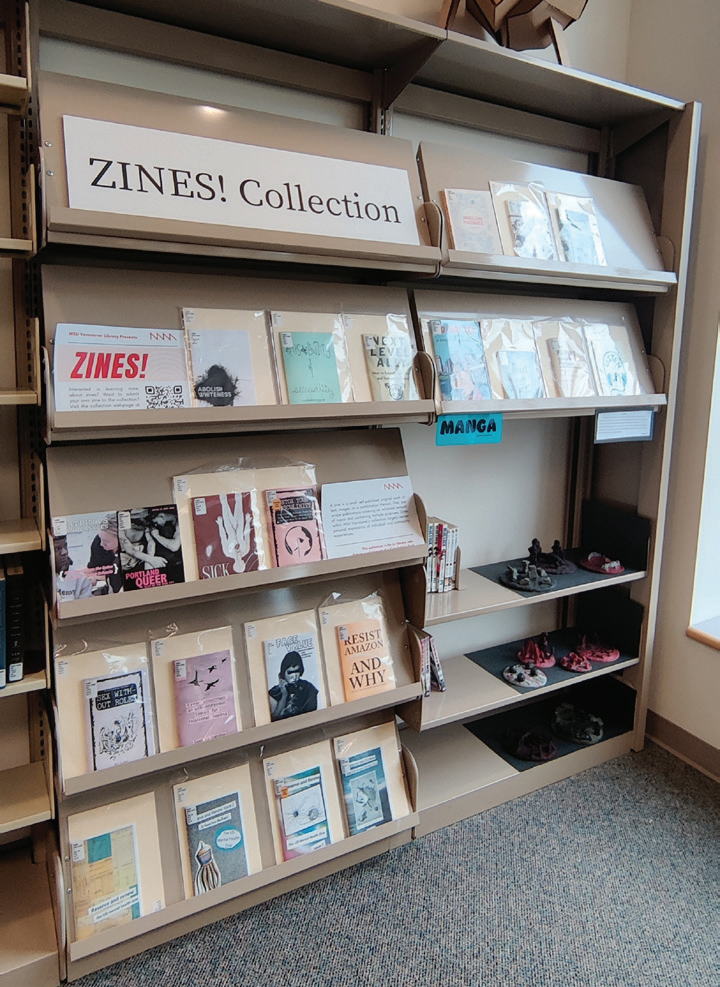By Pip Swinger | Staff Reporter
In this era where everything is available online, zines remain a treasured and nostalgic physical medium for making something and sharing it with the world—and WSU Vancouver has its own unique collection in the library.
Zines (short for magazines or fanzines) are small booklets of self-published work, often handmade and reproduced with a printer, that circulate outside of the mainstream publishing environment. Beginning as a way to share information and culture in communities such as the punk scene, LGBTQ+ groups, the music scene, sci-fi fans, and activist circles, they are a medium for sharing art and personal experiences in a way that doesn’t require approval from official publishers or institutions. Loved by many independent creators, they are a simple and low-cost way to share information for any community—underground or not.
The WSU Vancouver library’s own zine collection tries to keep that spirit alive. In 2021, librarians Caroll Fischer, Mark Hasse, and current collection lead Sam Buechler planted the seed that became the WSUV Zine library.
“It’s been done at other colleges, and we wanted to build our own… So we formed a small committee and drew out some guidelines, and got the funding to begin,” said Buechler.
The focus of the collection has always been on communities that exist on campus and locally but may not be represented in most academically published collections, in the interest of building a collection that is more representative of the WSU Vancouver population.
The collection gets added to regularly in a few different ways. Some zines are donated, some are submitted by students, and some are purchased through zine distributors.
But why collect zines at all?
“I think that the significance is in some ways preserving a really critical way of information sharing,” said Buechler. “Zine collections highlight the way that academic publishing is really fraught in and of itself. I think this is a way to highlight how information can be shared without having to go that route. It just affords a lot of opportunities—creativity and expression—that is often missing in academic libraries. [Academic publications] are research heavy, and this is a way to bring in holistic experiences.”
Buechler is also a longtime fan of zines: “I love reading them. I am a personal zine collector—I have probably over 100 at this point. They are all so unique because they are not held to strict regulations and guidelines. A cool way to share information within communities and learn about those communities [and] experience people’s art, basically.”
The library offers kits that students can check out and try making their own mini zine with. Buechler’s advice is simple: just start creating.
“There’s a wide array of what zines can look like,” they said. “Some are done on fancy printers or written on one sheet of paper with a pen and copied 100 times to make sure information can get out quickly. Just look at some examples and move from there.”
Zines can be poetry, comics, essays, letters, collages, artwork, journals, dream logs or even a manifesto—whatever is in your heart or on your mind.
People interested in submitting or recommending a zine can email van.library@wsu.edu or visit the library to learn more.

